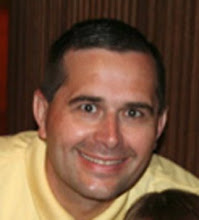Friends:
I thought a recent column of mine might interest you.
Wes
-----
Counterproductive Talk of School-reform Utopia
Wesley Null
guest column
Sunday, October 21, 2007, p. 10A
Waco Tribune-Herald
For more than a century, Americans have been in search of the great “quick fix” to “cure the problems” of public education.
Modern science claims to fix things. Curriculum and teaching, like many other fields, have been under the influence of modern science for at least 100 years.
Curriculum and teaching, however, are moral and social in nature, not theoretic. Curriculum and teaching cannot be “fixed” like we might fix a flat on the car or cure polio.
Making this point would not be so important if the opposite view were not so politically prevalent.
Listen to the unfortunate terminology of Deborah Stipek, dean of the School of Education at Stanford University. She recently wrote in the Dallas Morning News that universities need to follow Stanford’s lead and “fix the problems” of schools by “connecting schools with universities to ensure unbiased and rigorous research” in order to “transform our K-12 schools.”
I agree entirely that universities should join with K-12 schools, and we do that at Baylor University.
Beyond that, however, I have some concerns with her argument. As an education professor, I want to make sure that the profession of teaching does not promise an impossible future. Connecting universities with classroom practice benefits all of us only if we connect this task to a realistic view of human nature.
I do not follow Stipek’s vision that joining empirical research with practice will produce utopia.
Empirical studies can help us to improve practice in many ways, but human nature dictates the extent to which we can “fix” the social and moral problems that surround curriculum, teaching and schooling.
Teachers deal with human beings. Human beings are inherently flawed. We can improve ourselves, but we cannot engineer perfection.
I’m 34 and plan to contribute to the fields of curriculum, teaching and teacher education for at least 40 more years.
What do we do 10 years from now when we’ve thought we “fixed” schools and we still face difficult problems as teachers and teacher educators?
What do we do when the mirage of a perfect future does not materialize? What do we do when human nature proves yet again that we are fallen creatures?
Curriculum and teaching are unique kinds of problems. Teachers deal with human beings who have souls and a will. That reality makes teaching more difficult than any other art.
Physicians work to heal bodies, not souls. Engineers deal with bricks and steel, not souls. Teachers always shape students’ minds in the direction of right and wrong.
Without cooperation from willing students, teachers will make no impact. This reality makes teaching a cooperative art, not a productive one.
Educational history is littered with utopian reformers who promised a panacea, became popular and then vanished into thin air when the next salesman came along.
As a professor of curriculum, the long-term point to make is that teaching children and youth will always be difficult.
We will not produce a golden age in which all children are happily gobbling up every sliver of knowledge that we drop before them. There will never be a shortcut to good curriculum and teaching.
Stipek argues that we need “systematically developed knowledge.” Such a plan may be a good idea, but “systematic knowledge” in and of itself is not what we need.
We need people who know what to do with “systematic knowledge.” We need educational leaders who know the difference between a social problem and a theoretic one.
The time has come to emphasize virtue, character and statesmanship on the part of all people who lead educational institutions.
Only people who possess these traits can put systematic knowledge into practice in a responsible way.
Yes, we need to get more people out of universities and into classrooms. But let’s make sure that we pursue this goal based on a firm foundation and with a long-term vision in mind.
As we find in the book of Proverbs, “Where there is no vision, the people perish.”
Let’s make sure that our vision is rooted in both reality and truth. That’s an argument for connecting universities with schools for the long-term.
------------
Wesley Null is associate professor of curriculum in the School of Education and the Honors College at Baylor University. He is the editor, with Diane Ravitch, of Forgotten Heroes of American Education: The Great Tradition of Teaching Teachers. E-mail: Wesley_Null@baylor.edu.
Play List
Wednesday, October 24, 2007
Subscribe to:
Post Comments (Atom)

No comments:
Post a Comment